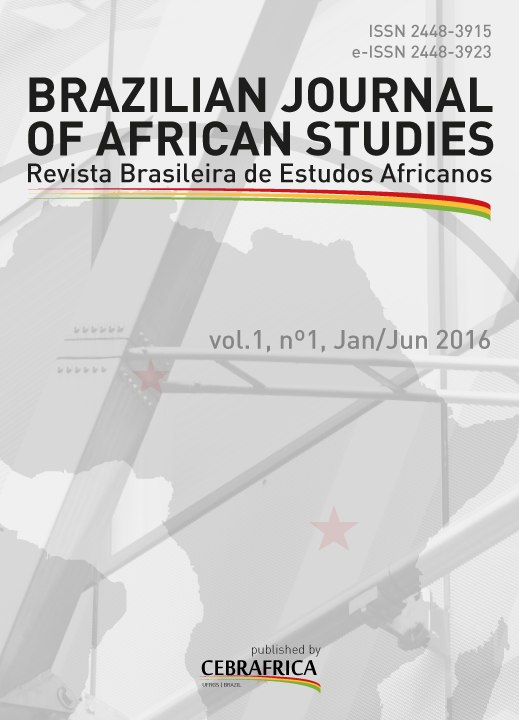BRAZIL-PALOP RELATIONS: 40 YEARS OF COOPERATION FOR DEVELOPMENT IN THE SOUTH ATLANTIC (1974/75-2015)
DOI:
https://doi.org/10.22456/2448-3923.59492Keywords:
Brazil, PALOP, CooperationAbstract
The celebration of 40 years of independence from Portuguese-speaking African Countries (PALOP) is critical to understand the historical and social, economic and integration into the world system of these former Portuguese colonies in Africa. The socialist experiments in the 1970s and 1980s, the external constraints, economic reform and the move towards a multi-party in the 1990s and the attempt to stabilize and develop in the 2000s, show an overview of successes and failures in the construction of five young countries. This article examines historically the political, economic, social and diplomatic path traveled by the five PALOP, based on the argument that these countries (although staying in the orbit of the former metropolis, especially after the 1980s), approached strategically from Brazil as basis of their political and cultural premises for their survival in the world system.Downloads
Download data is not yet available.
Downloads
Published
2016-05-31
How to Cite
Rizzi, K. R. (2016). BRAZIL-PALOP RELATIONS: 40 YEARS OF COOPERATION FOR DEVELOPMENT IN THE SOUTH ATLANTIC (1974/75-2015). Brazilian Journal of African Studies, 1(1). https://doi.org/10.22456/2448-3923.59492
Issue
Section
Articles
License
The author will hold copyright over the published articles and retain publishing rights.

Brazilian Journal of African Studies is licensed under a Creative Commons Atribuição 4.0 Internacional.


